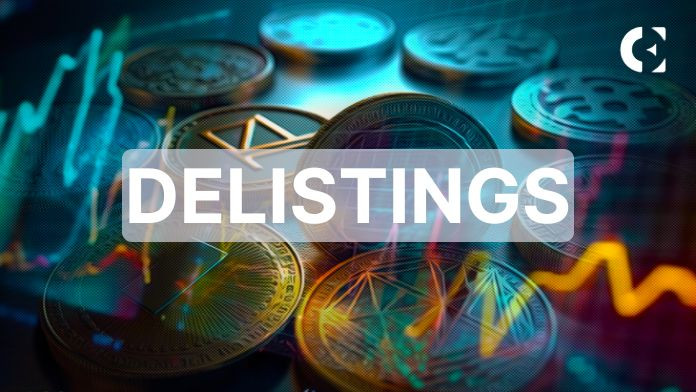Centralized crypto exchanges like Binance and KuCoin are cracking down on altcoins, removing several tokens from their platforms. Why the sudden purge? It boils down to investor protection and regulatory compliance. Let us look at the factors that lead to delisting and what it means for the crypto market.
Centralized exchanges stay proactive in protecting investors against rug-pulls, market manipulation tactics, and scams crypto projects. As a result, they have a stringent listing process and if an altcoin or a project is found breaking certain policies or not being up to the exchange’s standards, the trading platform decides to delist the token.
Binance’s recent removal of PowerPool (CVP) and other tokens highlights this trend. To safeguard investors and comply with regulations, CEXs maintain stringent listing processes. When an altcoin or project falls short of these standards, delisting becomes a likely outcome.
Another major crypto trading platform, KuCoin, had announced it will delist Soul Society (HON) and Konomi Network (KONO) on August 19, 2024, at 07:00:00 (UTC). KuCoin has asked users to cancel their trades and close their positions on these cryptocurrencies. These altcoins were under Special Treatment, a mechanism used by almost every CEX.
Under Special Treatment, a CEX lists a token in a controlled environment and subjects the altcoin to increased scrutiny. Investors are also informed that the altcoin is under observation. If the altcoin’s performance, liquidity, or demand is unsatisfactory during this period, the cryptocurrency may be delisted.
On the other hand, Bitget confirmed that it would delist the trading pair NFM/USDT on August 16, 2024, at 10:00 (UTC). According to the exchange, it considers several factors when delisting trading pairs, including trading volume, liquidity, the project’s team, developer activity, and any negligence or unethical conduct.
Additionally, CEXs also factor in the activeness of the community and the popularity of the crypto project before listing and during the observation period. If the hype doesn’t die down soon after listing and the fundamentals show strength, the observation period ends.
Disclaimer: The information presented in this article is for informational and educational purposes only. The article does not constitute financial advice or advice of any kind. Coin Edition is not responsible for any losses incurred as a result of the utilization of content, products, or services mentioned. Readers are advised to exercise caution before taking any action related to the company.







Leave a Reply